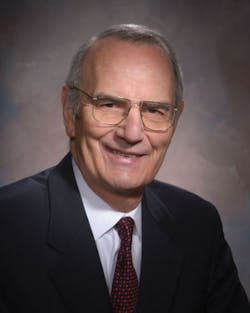Amen for Happenstance
Q: How did you get involved in the aviation industry?
A: Happenstance. I was working for the Seattle World Fair, running the fair’s office in Washington state. During the actual fair, I was the official escort for FAA Administrator Najeeb Halaby and his family. This was the first time I had met him, and we had a long breakfast at the restaurant at the top of the Space Needle. Several weeks later, he called me and asked if I would be interested in coming back to Washington and working for him at the FAA. As a result I went to the FAA working in Congressional Relations. It became obvious that I needed to understand aviation, so I got my pilot’s license. I was later promoted to assistant administrator of the agency. After seven years at the FAA, I was offered an opportunity to help start the General Aviation Manufacturers Association (GAMA). Shortly thereafter, I became president of the organization and did that for 19 years.
Q: What sort of trends do you see developing in the years to come?
A: So much has been accomplished in the aviation industry. The development and incorporation of technology along with improved training, not only of pilots but the entire workforce, has led to an overall terrific air transportation system with an excellent safety record, but it is still a subject we cannot be complacent about. The economics for many sectors of the aviation industry continue to be difficult. Growth will continue to challenge airport and airway capacity. Environmental concerns are still with us despite huge progress in making new aircraft cleaner and quieter.
Q: What was the biggest challenge you faced over the years in the industry?
A: The passage of the General Aviation Revitalization Act of 1994 was probably my biggest accomplishment. Fortunately, I had the help of the entire industry. While it did not solve all of the liability problems facing the industry, it did place a cap on the time period that a manufacturer could be sued. It truly helped the industry get going again.
Equally challenging was right after 9/11 when I was US Ambassador at ICAO (International Civil Aviation Organization). The United States worked hard and was able to achieve the enactment of new international security standards such as locked cockpit doors and international security audits.
Q: What has been your favorite part of working in the industry?
A: The people. General aviation in particular is still very much a “people business.” Friendships and interpersonal relations are still very important throughout the whole industry.
Q: Is there anything else that you would like our readers to know?
A: Ground support is obviously an extremely important facet of the aviation business. Billions are lost each year on ground accidents.
The Flight Safety Foundation is working with many other organizations and companies on the development and implementation of the ground accident prevention program. We are looking forward to improving the current record.
